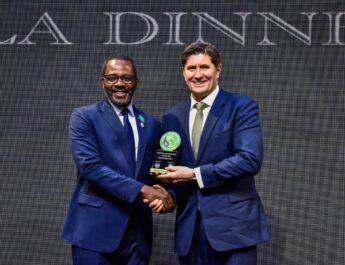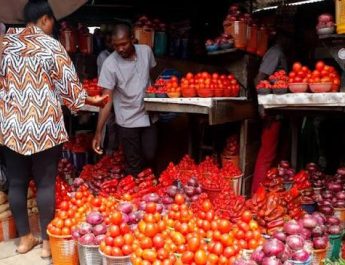As the Health of Mother Health Foundation (HOMEF) remembers the slain Ogoni Nine, issues of environmental devastation perpetrated by Shell and other oil multinationals that led to the killing on November 10, 1995 remain unresolved, even as their kinsmen lament continued neglect, while the Federal Government of Nigeria and other African leaders and their foreign collaborators pursue fossil fuel expansion projects in Nigeria and on the continent
By Edu Abade
In their deliberate attempt to silence dissent, African governments and its powerful juntas and despots have killed and continue to kill the brightest minds (her ‘suns’), a development that has left in its wake blinded and malnourished widows, deferred dreams of dependants and a largely rudderless followership.
This is the case of the Ogoni Nine who were slain exactly three decades ago, precisely in 1995. Before their execution by hanging, the Commonwealth of Nations had during a meeting in November 1995 resolved to send a delegation to Nigeria headed by the late South African former President, late Nelson Mandela to plead with General Sani Abacha junta to spare the lives of the Ogoni leaders.
The visit was to have been made between November 9 and November 10, 1995, but the Abacha regime acted too swiftly by executing leader of the Movement for the Survival of the Ogoni People (MOSOP), Ken Saro-Wiwa and eight other Ogoni ‘suns’- Barinem Kiobel, John Kpuinen, Baribor Bera, Felix Nuate, Paul Levula, Saturday Dobee, Nordu Eawo and Daniel Gbokoo.
Ledum Mitee, who was accused along with the slain martyrs survived mysteriously, but the tales of environmental devastation continue as loss of lives and livelihoods caused by the oil and gas exploration of Shell Petroleum Development Company (SPDC) and other International Oil Companies (IOCs) in Ogoni land and the entire Niger Delta region remain largely unresolved.
Given the events that led to the killing of the Ogoni Nine by a military Tribunal set up by the Abacha junta, it would seem that Saro-Wiwa was prepared for the outcome of his activities as a peaceful militant organizer.
Described as a courageous, fearless and dogged environmental activist, Saro-Wiwa, who was an acclaimed writer, novelist, publisher and a renowned academic had said, “The inconveniences which I and the Ogoni suffer, the harassment, arrests, detention and even death itself, are a proper price to pay for ending the nightmare of millions of people.
“The questions raised by the Ogoni struggle include the global issues of the right of man to a clean and pure environment, sustainable development and the political and economic rights of the various peoples who make up the multi-ethnic states of Africa.”
In spite of the fact that the cleanup of Ogoni land and all the issues that led to their murder of the Ogoni leaders have not been addressed (or only tangentially addressed) Saro-Wiwa, who lived a ‘charming,’ highlighted potential and easily passed for an example for young Africans to be led by their convictions.
That is why this year, while marking the 30th anniversary of the killing of Ogoni Nine, the Right Livelihood Award Foundation (RLAF), commemorated the Right Livelihood Award Laureate conferred on Saro-Wiwa in 1994, a year before he was murdered.
Speaking at a roundtable tagged Remembering Ken Saro-Wiwa: Right Livelihood Laureate organized by the Health of Mother Earth Foundation (HOMEF) and the Right Livelihood Award Foundation, Executive Director of RLAF, Ole von Uexkull, said the award, which serves as an alternative to the Nobel Laureate Award, was conferred on Saro-Wiwa and MOSOP in 1994 “For their exemplary courage in striving nonviolently for the civil, economic and environmental rights of their people.”
He said the struggles of Saro-Wiwa and the eight Ogoni leaders highlighted potential for younger people of Africa and especially Nigeria to be led by their convictions, particularly when faced with oppression, exacerbated by corruption and the loss of livelihoods caused by environmental infractions on the African soil and local communities.
Other recipients of the Right Livelihood Award are Vladimir Slivyak , who received it in 2021 for his defence of the environment and for helping to ignite grassroots opposition to the coal and nuclear industries in Russia and Mother Nature Cambodia “for their fearless and engaging activism to preserve Cambodia’s natural environment in the context of a highly restricted democratic space in 2023.
In 2014, Bill McKibben and his 350.org received the Right Livelihood Award “for mobilising growing popular support in the USA and around the world for strong action to counter the threat of global climate change.”
Legal Initiative for Forest and Environment (LIFE) clinched the award 2021 “For their innovative legal work empowering communities to protect their resources in the pursuit of environmental democracy in India,” while Davi Kopenawa and the Hutukara Yanomami Association received it in 2019 “For their courageous determination to protect the forests and biodiversity of the Amazon and the lands and culture of its indigenous peoples.”
In 2007, Grameen Shakti was recognized with the Right Livelihood Award “For bringing sustainable light and power to thousands of Bangladeshi villages, promoting health, education and productivity, while Hermann Scheer received it 1999 “For his indefatigable work for the promotion of solar energy worldwide.”
Uexkull lamented that although alternative sources of energy like solar have been identified as the cheapest means of energy generation, multinational oil and gas companies have insisted on pursuing short and long-term expansion of and exploration of fossil fuels.
According to him, the top upstream Oil and Gs developing companies include France’s TotalEnergies with $2,270 million barrels of oil equivalent (mmboe); Algeria’s Sonatrach with $1,748 mmboe; Italy’s Eni with $1,319 mmboe; Nigeria National Petroleum Company Limited (NNPCL) $1,015 mmboe; Japan’s Mitsui & Co with $718 mmboe and Mozambique’s Expresa Nacional de Hydrocarbonetos (ENH) with $631 mmboe.
Others are the United Kingdom’s British Petroleum (BP) with $617 mmboe; India’s Oil and Natural Gas Corporation (ONGC) with $574 mmboe; Libya’s National Oil Corporation (NOC) with a total of $490 mmboe; China’s National Offshore Oil Corporation with a total of $431 mmboe; the Nigerian Petroleum Development Company (NPDC) with a targeted $360 mmboe and India’s Bharat Petroleum Corporation with a projected $359 mmboe.
He also revealed that top bankers with fossil fuel expansion drive in Africa are Citigroup of the United States of America (U.S.A) with an investment of $5.591 billion; JPMorgan Chase ($5,093 billion); France’s BNP Paribas ($4.596 billion); Bank of America ($4.136 billion); Societe General of France with an estimated investment capital of $3.956 billion and United Kingdom’s (UK) Standard Chartered Bank with $3.592 billion.
Others are UK’s Baclays Bank ($3.565 billion); Japan’s SMBC Group ($3.488 billion); Mizuho Financial of Japan ($3.302 billion); Japan’s Mitsubishi UFJ Financial ($3.153 billion) and United Kingdom’s HSBC with a total investment of $3.055 on fossil fuel expansion projects in the short-term.
Speaking during the roundtable after watching a documentary on the killing of the Ogoni Nine anchored by Media and Communication Lead of HOMEF, ‘Kome Odhomoh, its Executive Director, Nnimmo Bassey, lamented that the issues for which Saro-Wiwa and his eight compatriots remain unresolved and that the relatives of the slain Ogoni leaders still suffer neglect and abject poverty, with no means of livelihood-the environment having been destroyed by years of oil and gas extraction.
His words, “The biggest violence that can be done to any country or community remains environmental violence. If we resolve the environmental issues, we can resolve a whole lot because Nigerians can help themselves. The government should wake up to the fact that the people are solely dependent on the environment.
“Ogoni land is a template for environmental crises in Nigeria, but unfortunately, when it comes to the environment, we are a lawless nation. One more oil well should not be opened in Ogoni, the Niger Delta, Nigeria and Africa, because oil destroyed the country.”
Speaking at the event, Executive Director of Corporate Accountability and Public Participation Africa (CAPPA), Akinbode Oluwafemi, described Saro-Wiwa’s legacy as one that continues to inspire global movements for justice, human rights and environmental protection.
He recalled the global outrage that followed Saro-Wiwa’s hanging on November 10, 1995, noting that his ideas and advocacy remain powerful decades after his demise.
Oluwafemi said the Right Livelihood Award, popularly known as the “Alternative Nobel Prize,” was created in response to the Nobel Foundation’s reluctance to recognize social and environmental justice struggles.
He reminded the audience that Saro-Wiwa received the award in 1994 for his non-violent campaign for the rights of the Ogoni and Niger Delta people, a year before his execution.
“It’s a great honour to host this important conversation as we remember Ken Saro-Wiwa, a Right Livelihood Award winner whose courage and ideas remain relevant 30 years after,” Oluwafemi said.



